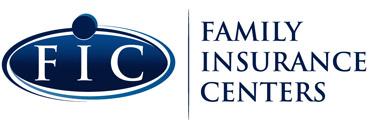Examining Flawed Auto Insurance Beliefs

Auto insurance is one of the most common forms of insurance, probably because it’s a legal requirement. Despite this, many people still don’t understand auto insurance as well as they should. Below is an overview of flawed beliefs people have on auto insurance.
Color Affects Insurance Rates
Some people believe that car color affects auto insurance rates. Others even make it specific enough and believe that red cars cost more to insure than cars with different colors.
The reality is that auto insurance companies do not use color when calculating premiums. However, a car’s color can affect its rates in other indirect ways, including the following.
Car Price
Color affects the demand for cars. For example, many Americans prefer white or black cars compared to, for example, green or gold cars. Product demand typically affects prices – this is true for cars also.
A car’s price determines how much the insurance company would spend if you lost the car or totaled it in an accident. Thus, cars with in-demand colors might attract higher premiums than others.
Cost of the Color
If you have the right insurance coverage, your insurance company should compensate you for all accidental damages to your car. For example, the compensation will include even the cost of repainting your car. Thus, cars with unusually expensive paints (in most cases, custom paints) may attract high premiums.
Risk of Ticketing
Some cars have unique colors that make them stand out from the crowd. A unique car with defects or an appearance that breaks traffic rules usually attracts the attention of the authorities. The car’s driver might attract more frequent traffic tickets than other drivers. Traffic tickets increase insurance costs.
Risk of Theft
A car’s color might affect its risk of theft. Auto insurance companies analyze risks and increase rates for cars they consider thief magnets. Thus, you may enjoy low rates if you drive a make and model with a color that thieves rarely target.
Comprehensive Insurance Is Complete Coverage
Another common belief is that comprehensive insurance covers every risk related to your car, which is not the case. Comprehensive insurance does cover numerous risks. Some of the things it covers include:
- Accidental damage
- Theft
- Vandalism
- Personal accident
However, just like other forms of insurance, comprehensive coverage comes with its limits. For example, the coverage typically excludes:
- Risks related to illegal activities, such as damages you might incur while driving without a license
- Damages related to normal wear and tear
- Depreciation losses
Also, coverage issues vary a lot between insurance companies. Thus, what is true for your neighbor might not necessarily be true for you if you use different insurance companies.
Auto Insurance Coverage Follows the Driver
Some people believe coverage follows the driver, while others believe it follows the car. If you are involved in an accident in a car you don’t own, whose insurance applies? Is it your insurance or the car owner’s insurance?
Like other auto insurance beliefs, the truth depends on multiple issues. In many cases, the type of coverage will determine whose insurance should pay the damages. For example:
- Liability insurance follows the driver. Thus, in case of an accident in a borrowed car, the driver’s liability coverage compensates the accident’s victims.
- Comprehensive and collision insurance follows the car. Thus, in case of an accident in someone else’s car, the owner’s comprehensive insurance covers the damage.
As is usually the case with insurance contracts, lots of terms and conditions and exceptions also apply. For example, insurance coverage might not apply to unauthorized drivers (such as excluded drivers).
As you can see, auto insurance can be quite complicated. Fortunately, you don’t have to know everything about car insurance. Family Insurance Center will answer all your insurance questions. Contact us with your insurance needs and benefit from our professional services.
